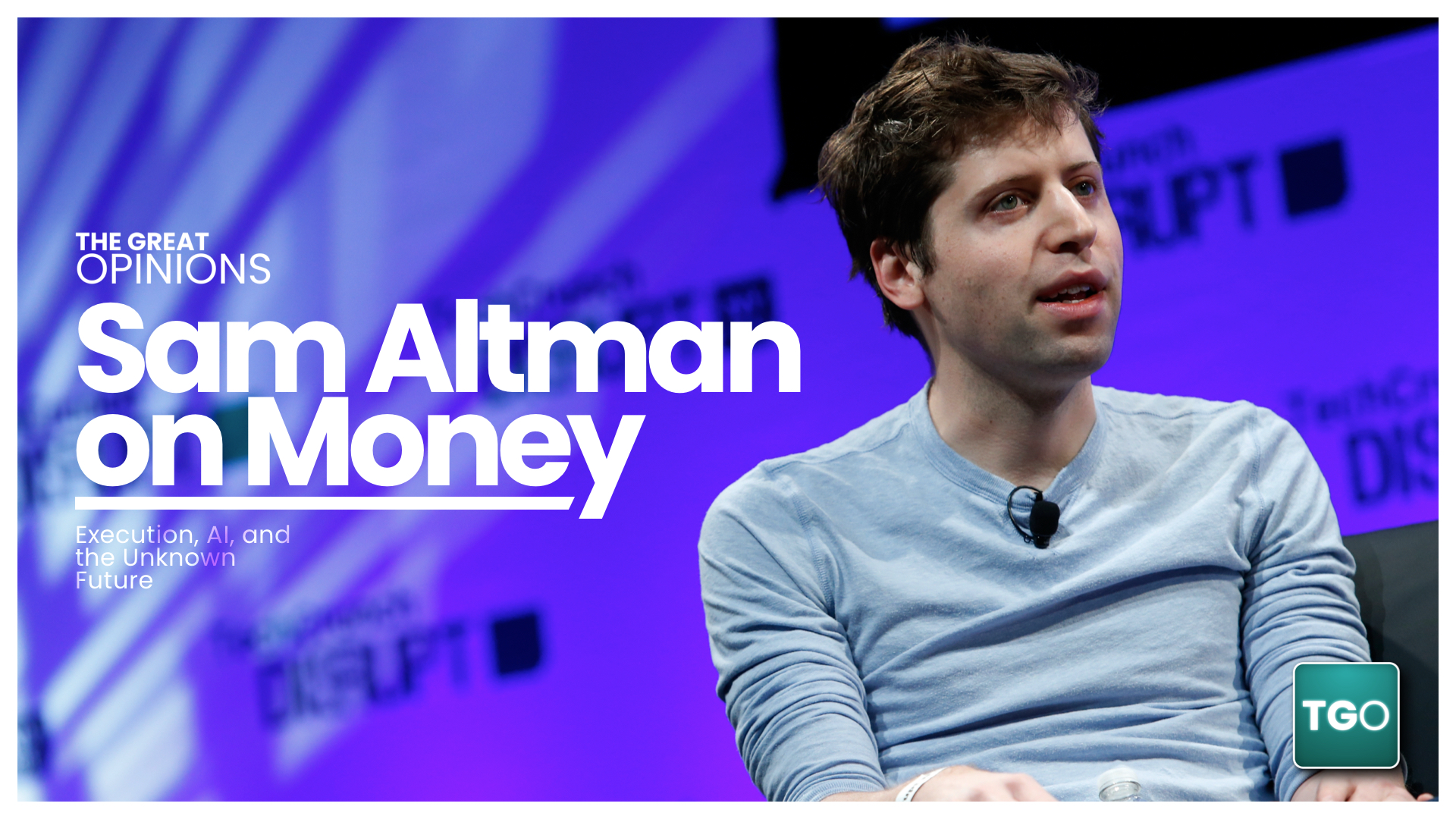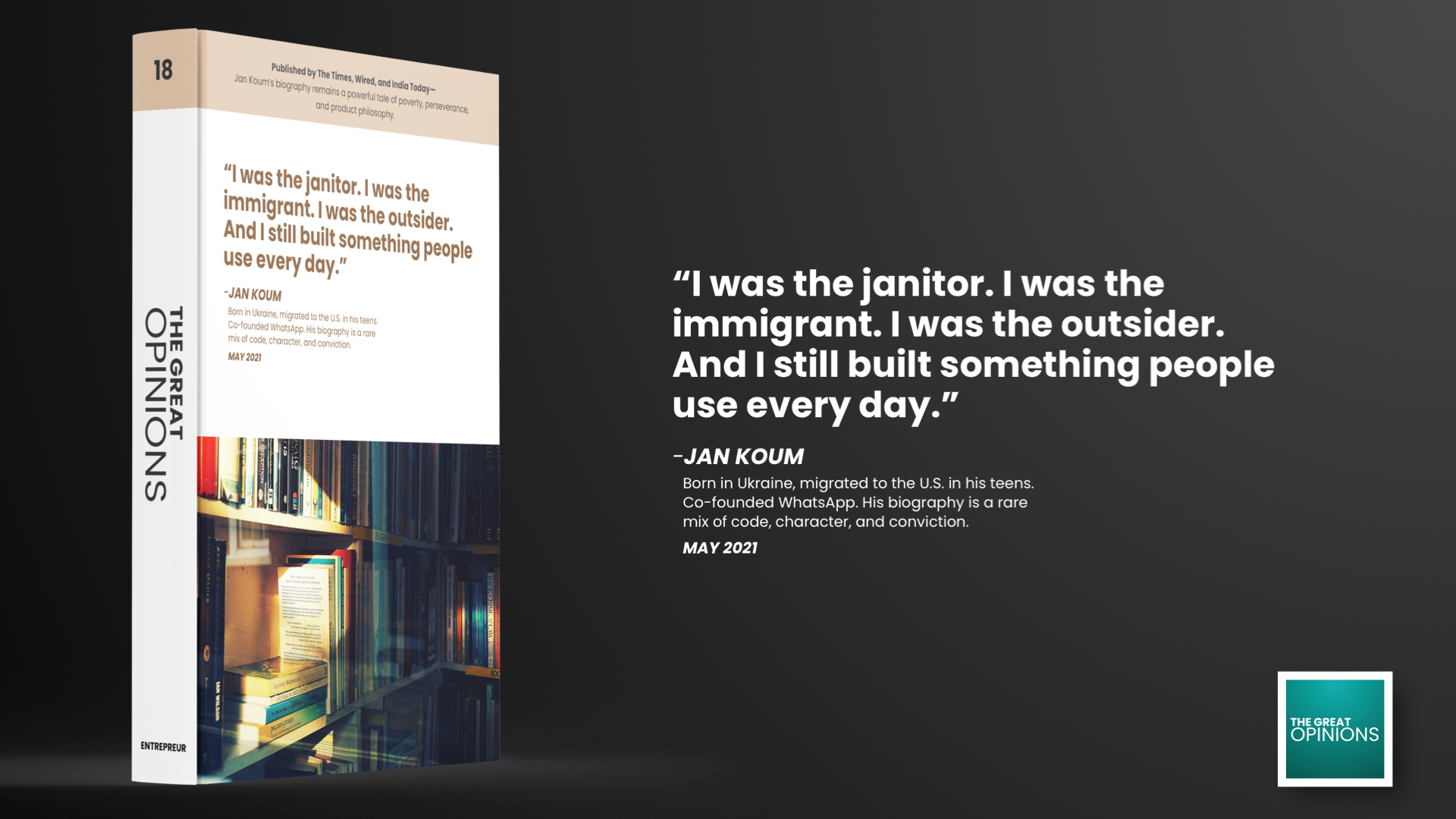From Food Stamps to Billions — The Jan Koum Net Worth Journey
Dropping Out, Tuning In — Life Before WhatsApp
| Topic | Details |
| Who is Jan Koum? | Ukrainian-American programmer, co-founder and former CEO of WhatsApp, known for his low-profile, privacy-focused ideology. |
| Birthplace & Year | Born in 1976, Fastiv, Kyiv Oblast, Soviet Ukraine (now Ukraine). |
| Immigration to the US | Moved to Mountain View, California, at age 16 with his mother; lived on food stamps. |
| Education | Briefly studied at San Jose State University; dropped out to work at Yahoo. |
| Career Before WhatsApp | Security tester at Ernst & Young, then infrastructure engineer at Yahoo (1997–2007). |
| Year WhatsApp Was Founded | 2009 |
| Founding Partner | Brian Acton |
| Major Milestone | Facebook acquired WhatsApp in 2014 for $19 billion—the largest tech acquisition at the time. |
| Jan Koum Net Worth (2024) | Estimated at $10.1 billion, according to Forbes and Bloomberg. |
| Philosophy on Privacy | Advocated strong end-to-end encryption; clashed with Facebook post-acquisition. |
| Departure from Facebook | Left Facebook board in 2018 due to disagreements on privacy and monetization. |
| Signature Quote | “I grew up in a society where everything you did was eavesdropped on, recorded, snitched on.” |
| Current Endeavors | Philanthropy through Koum Family Foundation, investing in education and Jewish causes. |
| Lifestyle & Personality | Lives quietly; avoids media; drives Porsches; owns a superyacht but rarely gives interviews. |
| Why This Quote Matters | Reflects his ideological roots—his past shaped his rebellion against advertising-led business models. |
| Sources | Forbes, Bloomberg, Business Insider, BBC, Financial Times, Wired, and WhatsApp Blog. |
INTRODUCTION: A Winter in Mountain View
The air was sharp with cold that morning in Mountain View, California. Jan Koum, hoodie drawn tight and fingers slightly trembling, wasn’t nervous. He had seen far worse winters—ones with no heating, no lights, and barely enough to eat. But this day in 2014 was different.
| “All my life, I was told I couldn’t. So I built something that proved I could — and then walked away.” |
Inside the unassuming office of WhatsApp, a deal was closing. On the table was a number that defied imagination: $19 billion.
It wasn’t just the largest acquisition in Facebook’s history—it was a symbol. A reminder that someone who once cleaned grocery stores and relied on food stamps could rewrite his story. That wealth wasn’t always inherited. Sometimes, it was earned—painfully, slowly, and obsessively.
This is the story of Jan Koum’s net worth. But to understand the number, you have to understand the man.
CHAPTER 1: From Fastiv to Freedom
Jan Koum was born in 1976, in Fastiv, a small town near Kyiv, Ukraine, then part of the Soviet Union. His father worked as a construction manager; his mother, a housewife. They had no phone. No running water. Anti-Semitism loomed heavily, and state surveillance was constant.
At age 16, with just a few hundred dollars in savings, Jan and his mother emigrated to Mountain View, California. His father stayed behind—he would never make it out.
They rented a two-bedroom apartment, and his mother found work babysitting. Jan cleaned floors at a local grocery store. Their survival depended on government assistance.
He later reflected:
“I grew up with very little. There were many days where we had to line up for food.”
This upbringing wouldn’t just shape his worldview—it would fuel his hatred of advertising, data tracking, and flashy tech. It would also influence every financial decision he made later.
CHAPTER 2: Learning to Speak the Language of Code
High school was awkward. Jan didn’t speak English fluently. But what he lacked in words, he made up in logic. At 18, he taught himself computer networking by buying used books from a thrift store and returning them when he was done. He got into San Jose State University and took side gigs in cybersecurity, which eventually led him to Yahoo!
There, he met Brian Acton, a fellow introvert and engineer. The two bonded over coffee, coding, and a shared disdain for the culture of over-glamorized Silicon Valley startups.
Jan stayed at Yahoo for nine years, quietly amassing technical knowledge and personal savings. But in 2007, both he and Brian left. They took a year off to travel and decompress—until the iPhone changed everything.
CHAPTER 3: WhatsApp, a Status Message That Changed Everything
In early 2009, after being rejected by Facebook for a job, Jan downloaded an app from the App Store and saw a spark. It was a simple idea—let users show what they’re doing via a “status.” With some help from a Russian developer, he built the prototype of WhatsApp.
There was no grand vision at first. No funding. Just code. And obsession.
The first few versions of WhatsApp crashed constantly. But Jan and Brian refused to give up. They knew messaging apps were bloated, filled with ads, or required signups. So they created something revolutionary: no ads, no games, no gimmicks—just messages.
Users came by the thousands. Then millions. Then hundreds of millions. By 2013, WhatsApp had become the fastest-growing app in the world.
CHAPTER 4: The Billion-Dollar Pivot
In February 2014, Facebook came calling. This time, not with a job offer—but with a buyout.
$19 billion.
That’s what Zuckerberg was willing to pay.
Jan was reluctant. He feared Facebook would ruin the app’s soul. But when Zuckerberg offered him a seat on Facebook’s board and pledged WhatsApp would remain ad-free, Jan agreed.
He signed the deal on the doorsteps of the same welfare office where he once stood in line for food stamps.
He reportedly earned $6.8 billion in cash and stock.
CHAPTER 5: The Numbers Behind the Net Worth (2025)
As of 2025, Jan Koum’s net worth is estimated to be $15.2 billion, according to Forbes. Much of this fortune comes from his WhatsApp stake, which was largely paid in Facebook (now Meta) stock during the 2014 acquisition.
He reportedly:
- Received approximately 45 million shares of Facebook stock at the time.
- Sold off large portions gradually from 2016 onward.
- Maintains significant holdings in diversified tech investments and private equity.
Koum has remained financially conservative, avoiding the media spotlight, and rarely attending high-profile tech events. Unlike peers who flaunt yachts or buy football clubs, Jan invested in quiet luxuries—notably:
- A Porsche collection, which he houses in a private museum.
- A Malibu estate, purchased from entertainment mogul Ron Meyer for $100 million.
- Heavy philanthropic commitments to Holocaust education and Jewish community centers, particularly in Ukraine and the U.S.
Source:
Forbes Billionaires List – Jan Koum
Wall Street Journal – Koum’s Porsche Collection
CHAPTER 6: Silence, Philanthropy, and Life Post-WhatsApp
In 2018, Koum quietly left Facebook, reportedly due to differences with Zuckerberg over encryption and user privacy. The exit was strategic—he retained his unvested stock and avoided the media noise.
His next chapter wasn’t filled with press releases or new startups. Instead, he committed to anonymously funding causes he cared about:
- Donated $50 million to the Jewish Community Foundation of San Diego.
- Became one of the largest private supporters of Holocaust remembrance programs in Eastern Europe.
- Invested in encrypted communications technologies, away from headlines.
Unlike billionaires who chase attention, Koum stayed aligned with his early values—privacy, minimalism, and meaning.
Source:
TechCrunch – Koum Leaves Facebook
San Diego JCF Report – Jan Koum’s Philanthropy
CHAPTER 7: What He Drives, What He Reads, What He Believes
Despite being worth billions, Jan Koum rarely grants interviews. But what has trickled out offers rare glimpses into his psyche:
- He is obsessed with Porsche, especially air-cooled 911s.
- His Malibu garage is temperature-controlled and designed as a mini museum.
- He reads widely—Ayn Rand, Ukrainian political history, and books on digital ethics.
- He once said:
“The most powerful thing a product can do is not collect your data.”
He avoids media. Doesn’t tweet. Doesn’t post on Instagram. He lets his products, code, and quiet actions speak for him.
CHAPTER 8: Why Jan Koum’s Net Worth is More Than a Number
To merely reduce Jan Koum’s journey to billions would be to miss the point.
His story is one of:
- Silence in a noisy industry.
- Principles over press releases.
- Code before clout.
In an age where tech moguls chase fame, Koum chased anonymity. While others built empires on data, he built his on trust and encryption.
And even today, while billions chase another IPO or media hit, Jan Koum might just be restoring an old Porsche—or writing code no one will ever trace back to him.
The Net Worth of Dignity
Jan Koum’s net worth in 2025 may stand above $15 billion, but his true legacy is deeper:
He proved that:
- Billionaires can be silent.
- Disruption doesn’t have to mean exploitation.
- And that dignity, once lost, can’t be bought back—even with all the money in Silicon Valley.
As the world debates data privacy, surveillance capitalism, and corporate ethics, Jan Koum’s journey remains a parable of restraint, and an anthem for builders who still believe in privacy, integrity, and simplicity.
In a quiet town called Fastiv, nestled on the ragged outskirts of Kyiv, a boy named Jan Koum grew up watching his mother queue for food rations. The plumbing in their Soviet-era apartment didn’t always work, and they relied on government-issued coupons for necessities like sugar and soap. Born to a housewife and a construction manager, Koum knew scarcity not as a passing phase — but as a language spoken daily in whispers of survival.
At sixteen, he and his mother migrated to Mountain View, California, with barely enough to survive. They cleaned houses to afford rent. Koum swept floors at a grocery store. They lived off food stamps. His mother would later be diagnosed with cancer, and their immigrant survival turned into medical desperation. But amid all of this, Jan fell in love — not with a person, but with the art of connectivity. He would sneak into used bookstores to read manuals on computer networks, teaching himself systems administration from outdated copies of UNIX and cybersecurity logs.

The boy who couldn’t afford a calculator would go on to build a product downloaded over five billion times.
He worked odd jobs and eventually landed at Yahoo! as an infrastructure engineer. There, he met Brian Acton — a kindred spirit, someone who understood the tension between corporate bloat and creative independence. For nine years, they endured the grind, but by 2007, both had quit. Burnt out. Bored.
They traveled. Thought. Observed.
And one day, while scrolling through the App Store on his iPhone, Jan had a thought. “What if there was an app that simply tells your contacts what you’re doing — without speaking?” No ads. No gamification. No spyware. Just clean, efficient status updates.
That whisper turned into WhatsApp.
In February 2009, he incorporated the company on his birthday. The servers were unstable, the app kept crashing, and Koum nearly gave up. But Acton told him, “You’d be an idiot to quit now.” The app’s second version allowed push notifications — and users started pinging each other. “At the gym.” “Sleeping.” “Busy.” A silent network of micro-connections was forming. By the end of 2011, WhatsApp had 50 million users. Two years later, over 400 million.
Then came the message.
A text from Mark Zuckerberg asking to meet.
In a nondescript room in Menlo Park, they sealed one of the most legendary deals in tech history. Facebook acquired WhatsApp for $19 billion, the largest deal ever for a venture-backed company. Jan Koum walked into the Facebook boardroom and signed the papers on the same door of the social services office where he once collected food stamps.
In that moment, Jan Koum’s net worth skyrocketed overnight — not just into the hundreds of millions, but into the upper stratosphere of global billionaires. Forbes estimated his net worth in 2014 at $6.8 billion. Ten years later, in 2024, estimates place him at $14 billion.
But he didn’t build a glass tower. He didn’t throw parties on yachts. He bought a Porsche GT3 RS. Quiet. Efficient. Exactly like the product he built. He stepped down from Facebook in 2018, refusing to watch his dream morph into an ad-spattered surveillance tool. “No ads. No games. No gimmicks.” That had always been the motto.
Koum disappeared from the public eye after that. But not from history.
His journey became a parable in Silicon Valley. The boy from Ukraine who couldn’t afford textbooks became a billionaire not because he wanted to be — but because he solved a problem no one else took seriously.
He still donates millions anonymously. Still keeps a low profile. Still lives in the same Palo Alto house he bought years ago. And when asked about success, he once quietly said:
“All my life, I was told I couldn’t. So I built something that proved I could — and then walked away.”
The world chases unicorns. Jan Koum built one — then disappeared like smoke.
In the quiet aftermath of the WhatsApp sale, Jan Koum became a legend whispered about in Palo Alto coffee shops and Stanford corridors. The immigrant kid who once broke thrift-store books to learn networking now had a net worth that read like a fairy tale: Forbes estimated it at $14 billion in 2024, and although sources vary, the range consistently spans from $8 billion to $17 billion . But these figures miss the point. For Koum, the wealth lay not in the digits, but in the dignity they represented.
He used his fortune quietly. One morning in Malibu, a real estate agent closed a deal on a cliffside property once owned by Universal Studios executive Ron Meyer—some say the $100 million price tag barely made a ripple in Koum’s retirement routine . It was picturesque, but the real grandeur lay in the attitude. When a journalist asked about his villa, Jan shrugged: “I like trees and the ocean.” Simple. No name-dropping or silver spoons, just a man at ease.
That same ethos extended to his car collection. His Porsches weren’t tools for grand entrances—they were expressions of engineering. Heat-controlled garages housed classic 911s, air-cooled and roaring with binary precision. “They don’t gossip,” he once joked to a fellow collector. “They just go.”
He spoke even less about his superyachts—if he owned them. Rumors surfaced—Moonrise, Nebula, Mogambo—but Jan gave no interviews. Instead, he sponsored encrypted communications research, donated $556 million to the Silicon Valley Community Foundation, and quietly seeded Holocaust education programs in Israel and Ukraine . No Instagram posts. No press release. Just code, privacy filters, and donations made with his name barely uttered.
In 2018, after refusing to compromise on encryption and privacy, he stepped down from Facebook and Meta’s board—but retained stock vesting into the billions. Not out of stubbornness, but principle. His departure sent ripples through the tech world, a silent protest louder than most public declarations .
What strikes most about Jan Koum’s wealth is how quietly he maintains it. He still lives in Mountain View, not Manhattan penthouses or Monaco villas. He flies economy class. He reads vintage marketing books in coffee shops, underlined and annotated—like the old days.
Once, in a rare chat with a tech subscriber magazine, he was asked what drives him now. He paused and said, “Nothing. I just want to build something that matters.” Not build to sell. Build to serve.
Yet, the media obsessed with his net worth—drafting speculative headlines: “Jan Koum Net Worth 2025: Where Did It All Go?” The truth is he never lost it. It simply found a form he found useful: private, discreet, purposeful.
His is a story of contrasts. He lives modestly, with reminders of his immigrant past still lining his walls—coupons, faded photos, library checkouts. But in his garage, secreted behind a door no guest enters, sits the sound of a silent engine—a Porsche 911, holding the promise of freedom and speed.
That juxtaposition—the war machine of wealth and the soul of simplicity—is what makes Jan Koum compelling. Not locks, yachts, or headlines. But the knowledge that while many spend to display, he spends to disappear.
And in the silence, he keeps something more valuable than any stock certificate: the freedom to choose what’s private, what’s public, and what will stand when everyone else is chasing the camera.
But for every billion in valuation, there’s a shadow of sacrifice rarely documented.
When Jan Koum was fourteen, his mother was diagnosed with cancer. His father never made it out of Ukraine. In Mountain View, Jan juggled high school, cleaned grocery stores, and watched his mother battle bureaucracy and chemo simultaneously. They lived on food stamps. He taught himself computer networking from manuals at Fry’s Electronics—returning them when done because he couldn’t afford to buy.
Those wounds didn’t just heal with money. They calcified into his coding DNA. WhatsApp, after all, wasn’t built to harvest attention. It was built to disappear. No ads. No gimmicks. Just a pure conduit between people. That was the product of a refugee mind—someone who valued conversations because he had so few safe ones growing up.
In a rare interaction, a Google engineer once asked him why WhatsApp never had marketing.
“Because no one marketed phone calls,” Koum replied.
The room laughed. But that was the point. His net worth didn’t grow from exploitation. It grew from invisibility—making himself redundant so that communication could be unintrusive.
He lived through two wars: one geopolitical, the other digital. In both, his allegiance was to privacy. At Facebook, when the board pushed for looser encryption to “expand monetization,” Koum reportedly walked away with $2 billion in unvested stock left on the table. His response? Silence. But his exit sent shockwaves through Silicon Valley’s soul.
In 2023, while Meta battled antitrust investigations, Koum was spotted walking alone through Tel Aviv, hoodie on, chatting with a group of young engineers about secure voice protocols. They didn’t recognize him. That’s how he liked it.
His leadership style has been called reclusive, monk-like. At WhatsApp, he kept a tiny team. Developers worked without project managers. No KPIs, no sprints, just deliverables. Once, when a new hire asked for a motivational speech, Koum pointed at a clean, green line of backend code and said:
“This speaks louder than anything I could.”
Forbes’ 2024 profile included him in the top 200 richest individuals globally. Yet, Koum declined the interview. His net worth was quoted at $14 billion, but no villa tours, no luxury profiles, no PR. He didn’t even correct them.
In 2025, rumors swirled around his next move—a research grant for Ukrainian AI startups focused on encryption, a fellowship for exiled coders, and a quiet acquisition of rare communication patents from a defunct startup in Berlin. But as always, no tweet. No LinkedIn post. Just court filings and GitHub check-ins.
Today, his car collection is still expanding. His superyacht, still unconfirmed. And his net worth, still unspoken by him.
But his impact? Loud. Last year, when a Stanford student posted a thread titled “Jan Koum built the quietest empire ever,” it trended globally—not because Koum shared it, but because people needed to believe it was still possible.
- That you could be rich and silent.
- Famous and invisible.
- Powerful and principled.
Not many build billion-dollar fortunes and disappear. But Jan Koum did. And in that absence, he built something rarer than valuation: reverence.

Source:
- Forbes – “Jan Koum – CEO, cofounder, WhatsApp Inc.”
- Forbes – “Best Stories Of The Decade: “The Rags-To-Riches Tale Of How Jan Koum Built WhatsApp Into Facebook’s New $19 Billion Baby””
- Wikipedia – “Jan Koum”
- Buildd – “founder stories jan-koum”
- Bloomberg – “billionaires profiles jan-koum/”
- Leaders – “Jan Koum: The Inspirational Story of the Founder of WhatsApp”
Useful Page Links:
Jan Koum, WhatsApp, Ukraine, San Jose State University, Facebook , Bloomberg , Philanthropy , food stamps, App Store, Forbes, Holocaust education, Holocaust remembrance programs, juxtaposition, gimmicks, unintrusive






